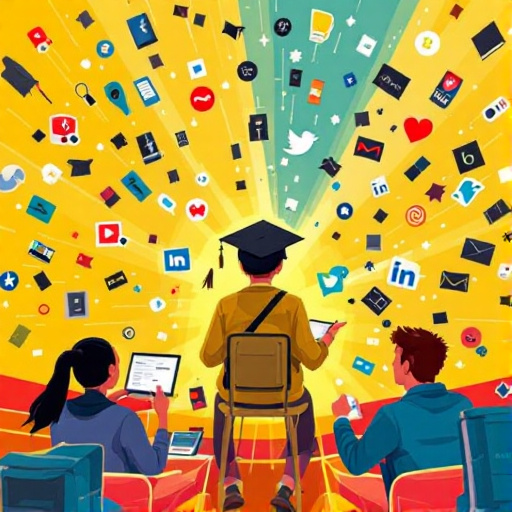Featured Articles
- Navigating the Unseen: How Social Media Influencers are Shaping the Future of College Scholarships
- Uncovering the Untapped: How Local Businesses Are Revolutionizing College Scholarships for Unique Talents
- Unlocking Hidden Funds: The Rise of Micro-Scholarships in the Gig Economy
- Unlocking Hidden Treasures: The Untapped Potential of Micro-Scholarships for Niche Skills and Hobbies
- Unlocking Opportunity: The Rise of Scholarships for Non-Traditional Pet Owners in Higher Education
Unlocking the Unusual: How Video Game Skills Are Becoming a Stepping Stone for College Scholarships
Unlocking the Unusual: How Video Game Skills Are Becoming a Stepping Stone for College Scholarships
As video games increasingly capture the imagination of youth, schools and colleges are beginning to recognize the skills developed through gaming as valuable assets for academic success. With competitive gaming and eSports gaining traction, students are now unlocking scholarship opportunities that not only reward their gaming expertise but also lead to career advancement in various fields.
The Rise of eSports and Its Implications
In recent years, the eSports industry has blossomed into a billion-dollar juggernaut, with an estimated valuation of over $1 billion in 2021, according to Newzoo. Major colleges and universities, such as the University of California, Irvine and Robert Morris University, have embraced competitive gaming, establishing dedicated eSports teams and even offering full scholarships. Over 400 schools in the United States now have eSports programs, and this number continues to grow, offering students not just an outlet for their passion but a new pathway to funding their education.
Scholarship Opportunities: The Numbers Speak
In 2020 alone, approximately $15 million in scholarships were awarded to high school and collegiate gamers, illustrating the lucrative rewards waiting for skilled players. Programs like the Tespa Collegiate Series have crafted various events targeting talented gamers, with over 200 schools involved in competitions spanning popular titles like Overwatch and Fortnite. It's not just about winning; it's about learning teamwork, strategy, and communication—fundamental skills that colleges highly value.
How to Get Involved
So, how can one get started on this gaming scholarship journey? It begins with a passion for gaming, but building a strong online presence is crucial. Create a gaming portfolio showcasing your skills, engage in online communities, and participate in tournaments to gain visibility. In addition, networking with current eSports players can provide insights into scholarship opportunities and best practices.
Success Stories: Real-Life Examples
Take the story of 18-year-old Maya Thompson, who went from being an average high school gamer to receiving a full scholarship to a top university for her talents in League of Legends. Her secret? Commitment and strategy. Maya dedicated countless hours to practicing with her team, ultimately leading them to state championships where they were recruited by colleges eager to build robust eSports programs. “I never thought I would be able to go to college based on my love for video games,” she said. “It’s incredible how gaming lent me a scholarship.”
The Skills Beyond the Screen
Let's get real for a moment—gaming isn't just about reflexes and button-mashing. The skills learned through extensive gameplay—like critical thinking, quick decision-making, and communication—are invaluable in a collegiate environment and the workforce. A study from the University of Southern California found that playing video games can enhance problem-solving abilities by up to 30%, effectively helping students tackle real-world challenges.
The Competitive Edge
Moreover, in a rapidly evolving job market, many employers, including major tech companies and startups, have begun prioritizing candidates who showcase a passion for gaming and related skills. They often recognize that gamers tend to possess a unique heritage of creativity and innovation. According to a survey by the National Association of Colleges and Employers, nearly 46% of employers value critical thinking over GPA; being able to showcase your gaming acumen can give you the edge you need.
From Gamer to Career
Interestingly, the successful evolution of eSports isn't confined merely to athletic features. Many players are leveraging their gaming skills to explore various career paths. For instance, game design, marketing, software development, and community management are just a few professions that have emerged from the world of eSports. As gaming becomes a recognized field of study, universities are beginning to offer courses that teach both the artistry and technicalities behind game development, further promoting the field's viability.
Engaging the Community
Getting involved in gaming can also have tremendous social benefits. When students congregate for gaming, they cultivate friendships and communities that often extend beyond the schoolyard. This community engagement strengthens their leadership skills, as many top-tier players often become mentors within their gaming communities. “I’ve met some of my best friends through gaming,” says 19-year-old James Garcia, who is also an aspiring streamer. “We uplift each other, and it shows in our gameplay. Plus, collaborating with others is a great way to improve.”
Fun and Stress Relief: A Balance in Life
Let’s not forget the therapeutic aspects of gaming! Amid studying, assignments, and exams, gaming offers students a necessary outlet for stress relief. Imagine snipping some colorful pixels after a long day of calculus or diving into a vibrant universe after submitting that huge paper. It’s about balance, folks! Plus, who can argue against the joy of winning a virtual battle with friends? Studies show that particularly competitive activities boost serotonin levels, leading to improved mood and reduced anxiety.
A Look into the Future
As we look towards the future, the potential for scholarships tied to gaming appears limitless. Various tech ventures are emerging, aimed at harnessing the talent of gamers and funneling that energy into educational programs. With several big-name companies starting to sponsor eSports scholarships, the landscape for student gamers is continually evolving. The situation hints at a shift in mindset within academia, where passion meets educational aspirations, urging institutions to rethink traditional scholarship paradigms.
The Opponents: Resistance and Misunderstanding
However, it hasn’t been a smooth ride for gaming scholarships. Resistance remains, particularly among educators and parents who view gaming as a waste of time. Critics argue that excessive gaming can lead to an unproductive lifestyle or even contribute to negative health effects. This misunderstanding is often rooted in a lack of awareness of the constructive dimensions of gaming culture. According to a survey from the Pew Research Center, while 72% of parents express concern over their children’s online playtime, a significant 61% acknowledged its social benefits, forging connections and partnerships.
Conclusion: Seizing Opportunities
In conclusion, the landscape of education is shifting, and so should our perceptions of what constitutes valuable student skills. Video games are no longer just a pastime; they are a viable avenue for scholarships and future success. It’s time for students and educators alike to recognize the potential benefits of gaming and embrace its multifaceted advantages. So, whether you're sunk in a dungeon or building fortresses, always remember: your next enemy might just be a scholarship waiting to be unlocked.




